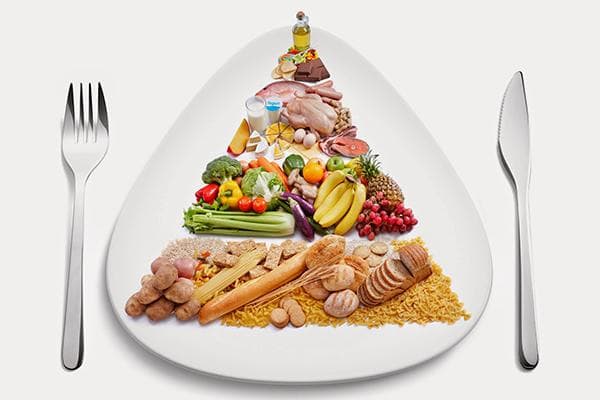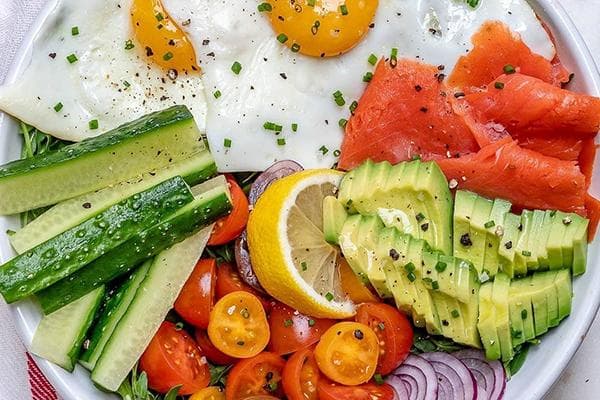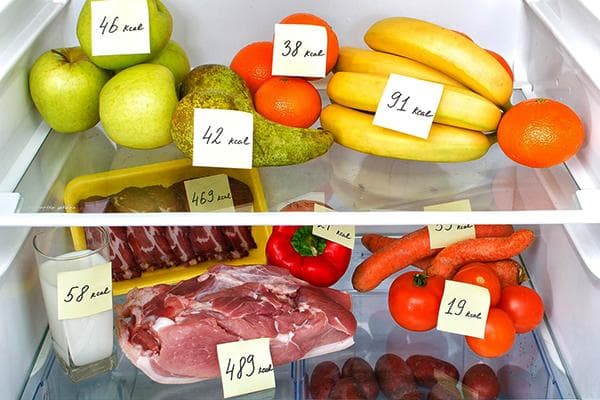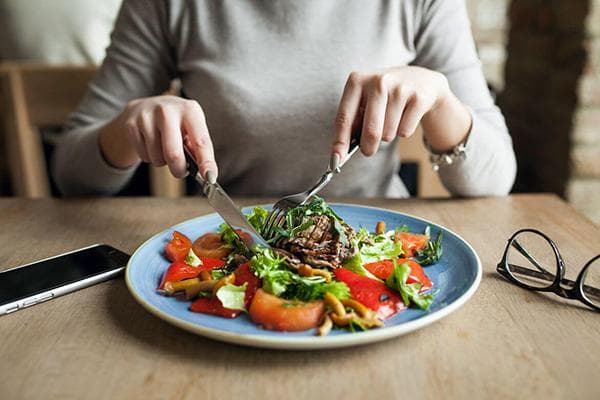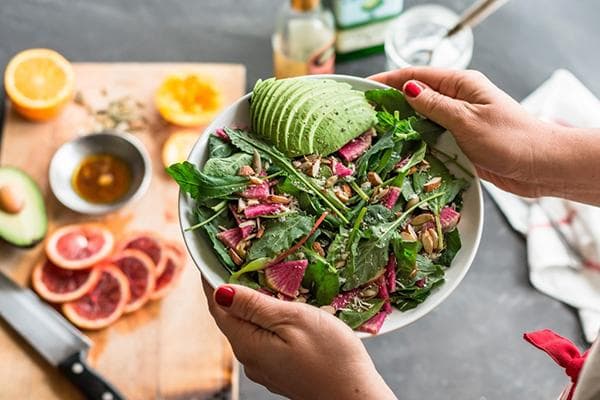Where to start with proper nutrition to avoid breakdowns: useful advice from doctors and nutritionists
Content:
Eating unhealthy foods is the main cause of chronic diseases: obesity, type 2 diabetes, atherosclerosis, hypertension, osteoporosis. Eating tips are designed to help people prevent serious illnesses and increase their life expectancy. However, there is a lot of conflicting information on the Internet on the topic of health, in which it is easy to get confused. This article will list the most useful advice from doctors and nutritionists on proper nutrition, confirmed by science.

Where to start switching to proper nutrition?
The transition to proper nutrition requires psychological preparation. It is impossible to get rid of bad habits in 1 day or even a week. Instead of losing weight, a person gets nervous breakdowns, which result in overeating and rapid weight gain. The main principle of switching to proper nutrition is patience.
- Stage 1.Including tasty but healthy foods in your diet
With proper nutrition, prepare yourself vegetable salads seasoned with lemon juice and olive oil. Enjoy fruits, dried fruits, nuts, smoothies. Bake pastries with whole wheat flour, not white flour.
- Stage 2. Gradually limiting junk food
Don't eliminate all your favorite foods from your diet at once. For example, at first you can limit the consumption of flour products: white bread, rolls, pancakes. And after a month, set yourself to eat sweets less often.
- Stage 3. Control of emotions
Most people binge on delicious, high-calorie foods because they don’t see an alternative way to enjoy life. If you decide to switch to proper nutrition, find yourself an active activity. It could be tourism, sports, dancing or a dizzying romance. The main thing is that it is not associated with eating and gives you positive emotions.
- Step 4: Calorie and Nutrient Counting
Only when you learn to control your appetite and not replace the whole world with food, can you move on to the numbers: calorie content, dietary fat. But don’t treat them with fanaticism, otherwise you will start to break down again.
TOP 5 principles of proper nutrition
Nutrition is an umbrella term for all tips related to creating a healthy diet. The following are principles that are approved by most doctors and nutritionists.
Principle 1. Balance of proteins, fats and carbohydrates
How to properly distribute proteins, fats and carbohydrates in the diet? Endocrinologist Natalya Zubareva in her book “Waltz of Hormones” gives the following advice:
- for those who move a lot during the day or exercise: 50% - carbohydrates, 30% - proteins, 20% - fats;
- for people with a sedentary lifestyle: 40% - carbohydrates, 40% - proteins, 20% - fats.
Preference should be given to complex carbohydrates. They are found in unrefined cereals (buckwheat, brown rice, oatmeal), whole grain bread, durum wheat pasta, and vegetables. Complex carbohydrates are absorbed slowly by the body, so they release energy evenly throughout the day. A person feels full and productive for a long time.
Simple carbohydrates are empty energy. They are found in many high-calorie foods: sweets, white flour products, starchy vegetables (especially potatoes), sweet fruits. They cause a sharp increase in the level of glucose and the hormone insulin in the blood. The remains of undigested simple carbohydrates are stored in fat reserves. Proper nutrition involves limiting such nutrients in the diet.
The healthiest fats for the body are polyunsaturated fats, high in omega-3 fatty acids. They are present in nuts, unrefined cold-pressed oils (olive, flaxseed, corn and others), and sea fish.
Principle 2: Diversity
Proper nutrition involves providing the body with the necessary vitamins, macro- and microelements. This effect can only be achieved with a varied diet. This is why doctors advise against practicing mono- and express diets for weight loss.
Table 1. What foods to choose for proper nutrition?
| Substance | Which organs and systems does it benefit? | In what products is it present in large quantities? |
|---|---|---|
| Vitamin C | Immunity, blood vessels | Fresh fruits (especially citrus fruits), berries (especially rose hips and sea buckthorn), herbs |
| Vitamin A | Skin, hair, reproductive system | Red and orange vegetables and fruits (especially carrots, pumpkin) |
| B vitamins | Nervous system, hormonal system, brain | Red meat, legumes, nuts, grains |
| Vitamin K | Circulatory system | Greenery |
| Vitamin E | Skin, hair, hormonal system | Butter, vegetable oils, nuts |
| Potassium, magnesium | Heart and blood vessels | Vegetables, fruits, greens |
| Iron | Circulatory system, immunity, thyroid gland | Organal meats (especially beef liver), legumes, dark chocolate |
| Calcium, silicon, phosphorus | Musculoskeletal system, teeth | Dairy products, greens |
Principle 3. Consideration of health status and contraindications
Not all advice on proper nutrition is universal. For example, citrus fruits are healthy for most people due to their high vitamin content. But such fruits are strictly contraindicated for persons with high acidity of gastric juice, gastritis, or ulcers.
Patients with gout should take a very responsible approach to diet planning. For example, meat, sorrel, spinach, grapes are healthy foods. But they contain large amounts of purines, which increase uric acid levels in the body. Such food can increase inflammation in the joints.
Principle 4. Increasing the amount of enzymes in the diet
Enzymes (enzymes) are substances of protein nature. They help the body properly absorb foods. Due to chronic diseases and with age, enzyme production decreases. This leads to problems with the gastrointestinal tract and the development of vitamin deficiency even with proper nutrition.
Fortunately, enzymes are present in some types of food. To improve your health, include the following foods in your diet:
- kefir, yogurt, fermented baked milk;
- soft cheese;
- homemade yogurt;
- soybean paste - miso;
- sauerkraut, kimchi;
- sprouted grains;
- pineapple, papaya;
- avocado;
- lingonberries;
- nuts.
It is important to consider that enzymes are destroyed during heat treatment. Therefore, with proper nutrition, nuts should be eaten raw, and grains should be soaked in water for 8-12 hours before consumption.
Principle 5. Optimal calorie content
Most diets limit caloric intake to 800–1000 kcal per day. But this amount turns out to be too small even for people leading a sedentary lifestyle. A sharp reduction in calories is the path to slowing down metabolism and subsequent weight gain even from “light” foods.
The following factors influence the calculation of the exact daily calorie intake:
- floor;
- body mass;
- age;
- lifestyle – sedentary or active;
- subjective feelings.
For example, nutritionists advise young men who regularly exercise to consume 2800–3000 kcal per day. And for women in the age category “40+”, employed in the field of intellectual work, 2400–2600 kcal will be enough. Cardiologist, TV presenter of the “About the Most Important” program Alexander Myasnikov advises most people who want to lose weight to start from the figure of 1800 kcal.
Useful tips for maintaining your diet
Advice on proper nutrition affects not only the choice of foods, but also compliance with the regime. The timing and frequency of meals influence your health.
Tip 1: Don't snack
This advice may seem shocking to many due to the popularity of articles about the benefits of fractional nutrition. For a long time it was believed that it speeds up metabolism and promotes the fat burning process. However, this effect has not been confirmed in serious scientific studies.
Today, a large number of doctors, especially endocrinologists and nutritionists (in particular Zubareva N., Kovalkov A., Makisha M., Mukhina M.) are against frequent meals.
This is what happens to a person who snacks:
- You develop a bad habit of constantly eating. Portion sizes increase over time, which leads to exceeding the daily calorie intake.
- Insulin levels in the blood are high. The pancreas releases this hormone after every meal (even a low-calorie apple and a glass of kefir). Insulin inhibits lipolysis, the process of fat burning.
- Over time, insulin resistance develops. The body's cells lose sensitivity to insulin, so the pancreas works hard, producing even more hormone. The risk of type 2 diabetes increases.
With proper nutrition, breaks between meals should be 3-4 hours. If you feel hungry, increase your caloric intake with healthy fats and proteins.
Tip 2. Don't overeat before bed
The advice that you should not eat after 18:00 is only suitable for early risers. For the rest, you can have your last meal no later than 3 hours before bedtime. During this period, the gastrointestinal tract will have time to digest dinner and rest peacefully at night.
Tip 3: Properly distribute nutrients throughout the day
With proper distribution of nutrients, it is allowed to consume any food.
Most doctors and nutritionists give the following advice on proper nutrition:
- "Simple" carbohydrates. Sweets can be eaten until 12:00, and fruits - until 16:00–17:00.
- "Complex carbohydrates. Allowed at any time of the day, except evening. If you eat them for dinner, you can gain weight.
- Fats. According to Dr. Myasnikov A., they are better absorbed between 06:00 and 09:00.That is, fats are allowed for breakfast.
- Squirrels. They are healthy to eat for lunch and dinner.
Vegetables and herbs, low-fat milk are allowed at any time of the day.
Let's give an example of a rational menu.
For breakfast you eat buckwheat with butter, a bun with raisins (“complex” and “simple” carbohydrates + fats), for lunch – vegetable salad and beef steak (“complex carbohydrates” + proteins), for dinner – grilled fish (proteins ).
How to reduce cravings for junk food?
Typically, cravings for sweets and flour go away with a varied diet, in which food high in vitamins predominates. But this does not happen immediately, but after at least 1 month from the moment of starting proper nutrition.
The microelement chromium will help quickly reduce cravings for “simple” carbohydrates. This substance is present in large quantities in the following products:
- fish, especially tuna, pink salmon, salmon, mackerel, pollock;
- shrimp;
- corn;
- buckwheat;
- beans;
- whole grain bread;
- chicken and quail yolks;
- pork
Those with a sweet tooth should focus on this type of food when planning their diet. Another tip is to take a chromium picolinate supplement, but only after consulting your doctor.
At first, following advice on proper nutrition is difficult, due to psychological reasons. If you want to switch to a healthy diet, avoid any extremes and take it gradually. Start by introducing new products to the menu, not by banning them. Proper nutrition benefits the body only if it becomes a way of thinking, and not a way to lose a couple of kilos in a month.

